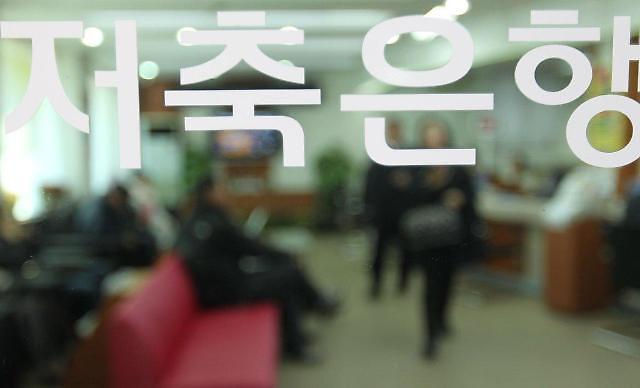
[사진=연합뉴스]
Money borrowed from savings banks by individuals and domestic companies soared by 9 trillion won this year.
According to the Bank of Korea Economic Statistics System on the 27th, as of the end of October, the total credit balance of domestic savings banks was KRW 74,395.5 billion. This is an increase of 9,3451 billion won from the end of last year.
Savings bank loan balance exceeded 60 trillion won in April and then surpassed 70 trillion won in July. It surpassed 74 trillion won in 3 months. Savings bank loans have increased by more than 1 trillion won for four consecutive months since July. If it is such an increase, it is highly likely that this year-end increase will exceed 10 trillion won.
The reason that money borrowed from savings banks has soared this year is because the lending rate of savings banks has decreased.
According to the Federation of Savings Banks, only 23 out of 68 savings banks handling household mortgage loans as of last October handled loans with an interest rate of 15% or more per year.
Out of 35 savings banks that handle household credit loans, the average interest rate of 34 except one was below 20% per year. While the financial authorities are pressing the savings banking industry to keep the lending rate below 20% a year and expand the 10% range of medium-rate loans, the fact that the Bank of Korea’s benchmark interest rate has actually reached zero has contributed to the drop in interest rates.
There are also concerns that some are concerned that the financial market is unstable due to the steep lending growth of savings banks.
In the Financial Stability Report published on the 24th, the Bank of Korea said, “If the economic downturn prolongs in the future, the recent rapid loan growth can become a risk factor. Therefore, it is necessary to strengthen the internal risk management system and expand the ability to absorb losses. There is” he pointed out.
©’Five-language global economic newspaper’ Ajou Economy. Prohibition of unauthorized reproduction and redistribution
